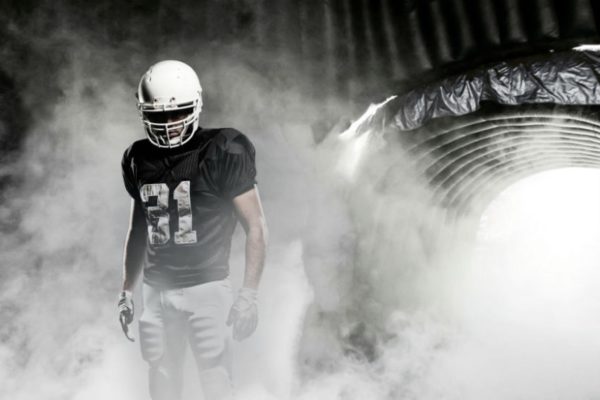NFL owners have locked arms with players, and Jerry Jones took a knee. Media accounts celebrated “unity” and “solidarity.” Sports Illustrated has now declared the sports world to be “united.” Sparked by characteristically outrageous comments from President Donald Trump, players, coaches and owners alike insist that they will not be divided.
As inspiring as this collective voice may sound, it has the potential to drown out the individual voices that gave rise to protests in the first place. The more the league promotes solidarity, the more easily we will return to the status quo.
“Unity” is always valued in team sports, none more so than football. Sports rely on an “us” and “them” dynamic, and having a clear enemy (or rival) helps define who “we” are united against. In this particular case, it is notable that the enemy is the president, a fact that spotlights the political complexities of sports.
Yet, as compelling as it has been to see so many expressions of citizenship from a group—athletes—often assumed to occupy an unpolitical space, there are significant limits to the “unity” that is currently defining the story.
This emerging and apparently sudden resistance owes more to the indelicacy of Trump’s commentary than to any sense of social justice. This is why it is crucial to be reminded why these protests began in the first place.
The striking absence of Colin Kaepernick—from the field of play, from the talk of “unity,” from the Sports Illustrated cover—means that his attention on racial injustice and violence has been comfortably absorbed into a larger story about “unity.” Owners standing with players in defiance of a Trump is good public relations. It is not justice.
In spite of this concern, the recent collective actions of this past weekend have opened an important space for discussion. Suddenly, Americans who have viewed the national anthem ceremony merely as “patriotic” now recognize it as unavoidably political. Make no mistake: The choice to include the anthem ritual, commonly coupled with spectacular displays of militarism, is political.
This is why Kaepernick chose the anthem ritual as his platform to speak out. By its nature, it is an event designed to create “unity” out of a diverse people, to use the spectacle of sport to promote a sense of national identity. In contrast, protest is uncomfortable, it challenges our most securely held convictions, and it is meant to create divisions out of that orchestrated unity. It demands that we choose sides.
The risk of this newfound “unity” is that the discomfort provoked by Kaepernick will be quietly swept away. It is a convenient exit strategy for the league—address the lingering “distraction” of political protests by redirecting energy toward a new common enemy, “unite” against our national bully, and then move on. None of those ownership statements said a word about police violence or racial inequality. Meanwhile, mainstream sports media favored images of “solidarity” over substantive discussions of the ability of athletes, many of whom are African American, to speak out against injustices that they have seen and, in some cases, experienced directly.
Was this the crest of a rapidly receding wave, or was it a tipping point? For it to be the latter, the protests must continue to grow. Already, the “unity” promoted by the common wisdom is fragile—some players favored taking a knee over standing with locked arms; others held their fists in the air, and some preferred to honor the ritual’s normal purpose. In the coming weeks, we need to see further disruption and new challenges. In other words, we need disunity.
The sports calendar may facilitate just such growth, especially with the start of the NBA season around the corner. The league’s brightest stars have become increasingly vocal in recent years, led by voices such as LeBron James and Stephen Curry. The coming weeks are crucial—calls for “unity” cannot displace calls for justice, and ongoing attention to the NFL must set the stage for the next act in the NBA.
Michael Butterworth is a professor of communication studies and director of the Center for Sports Communication & Media in the Moody College of Communication at The University of Texas at Austin.
A version of this op-ed appeared in the Detroit Free Press, San Antonio Express News, Corpus Christi Caller Times, and the Austin American Statesman.
To view more op-eds from Texas Perspectives, click here.
Like us on Facebook.




